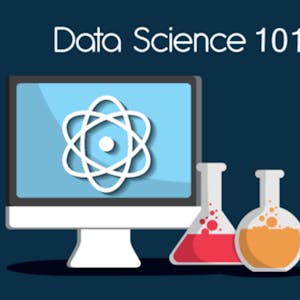AI Workflow: Business Priorities and Data Ingestion
About this Course
This is the first course of a six part specialization. You are STRONGLY encouraged to complete these courses in order as they are not individual independent courses, but part of a workflow where each course builds on the previous ones. This first course in the IBM AI Enterprise Workflow Certification specialization introduces you to the scope of the specialization and prerequisites. Specifically, the courses in this specialization are meant for practicing data scientists who are knowledgeable about probability, statistics, linear algebra, and Python tooling for data science and machine learning. A hypothetical streaming media company will be introduced as your new client. You will be introduced to the concept of design thinking, IBMs framework for organizing large enterprise AI projects. You will also be introduced to the basics of scientific thinking, because the quality that distinguishes a seasoned data scientist from a beginner is creative, scientific thinking. Finally you will start your work for the hypothetical media company by understanding the data they have, and by building a data ingestion pipeline using Python and Jupyter notebooks. By the end of this course you should be able to: 1. Know the advantages of carrying out data science using a structured process 2. Describe how the stages of design thinking correspond to the AI enterprise workflow 3. Discuss several strategies used to prioritize business opportunities 4. Explain where data science and data engineering have the most overlap in the AI workflow 5. Explain the purpose of testing in data ingestion 6. Describe the use case for sparse matrices as a target destination for data ingestion 7. Know the initial steps that can be taken towards automation of data ingestion pipelines Who should take this course? This course targets existing data science practitioners that have expertise building machine learning models, who want to deepen their skills on building and deploying AI in large enterprises. If you are an aspiring Data Scientist, this course is NOT for you as you need real world expertise to benefit from the content of these courses. What skills should you have? It is assumed you have a solid understanding of the following topics prior to starting this course: Fundamental understanding of Linear Algebra; Understand sampling, probability theory, and probability distributions; Knowledge of descriptive and inferential statistical concepts; General understanding of machine learning techniques and best practices; Practiced understanding of Python and the packages commonly used in data science: NumPy, Pandas, matplotlib, scikit-learn; Familiarity with IBM Watson Studio; Familiarity with the design thinking process.Created by: IBM

Related Online Courses
This Specialization is intended for post-graduate students seeking to develop effective communication skills. Through a series of courses, you will cover key topics such as audience analysis,... more
This is a self-paced lab that takes place in the Google Cloud console. In this lab, you migrate a stand-alone PostgreSQL database (running on a virtual machine) to Cloud SQL for PostgreSQL using a... more
The art of uncovering the insights and trends in data has been around since ancient times. The ancient Egyptians used census data to increase efficiency in tax collection and they accurately... more
In this course, you will learn how to define your target market, create a scalable sales process, and build training, coaching, hiring, and onboarding programs to help your sales team grow better.... more
This Salesforce Certified Platform App Builder specialization is for individuals seeking proficiency in Salesforce administration and application development. The specialization covers essential... more








